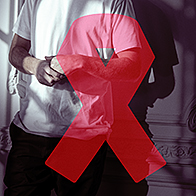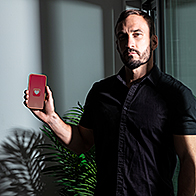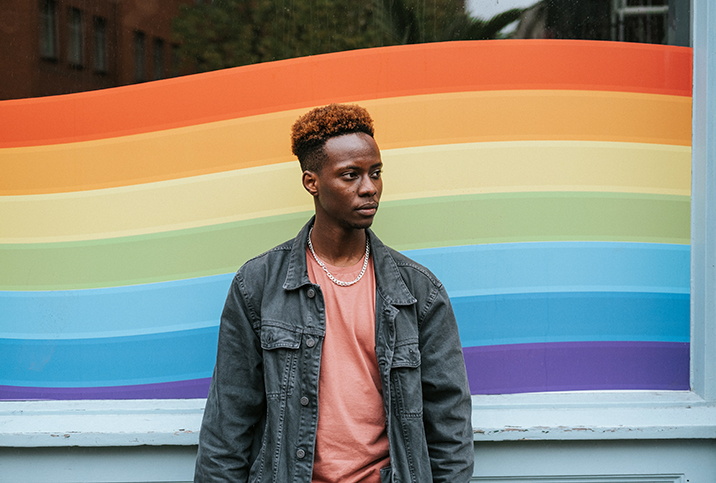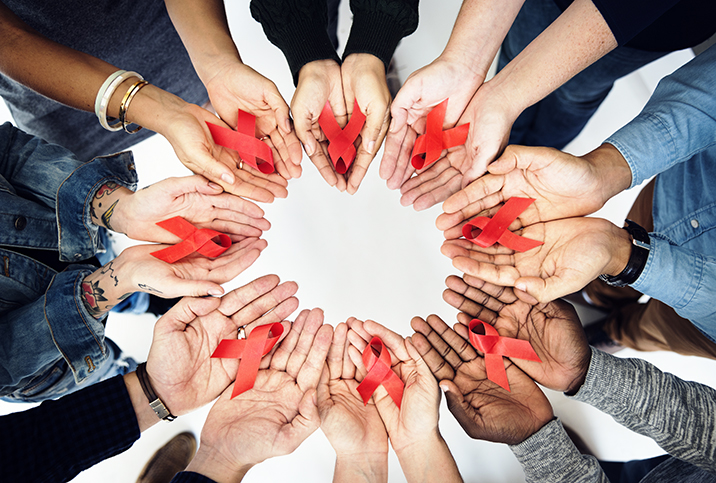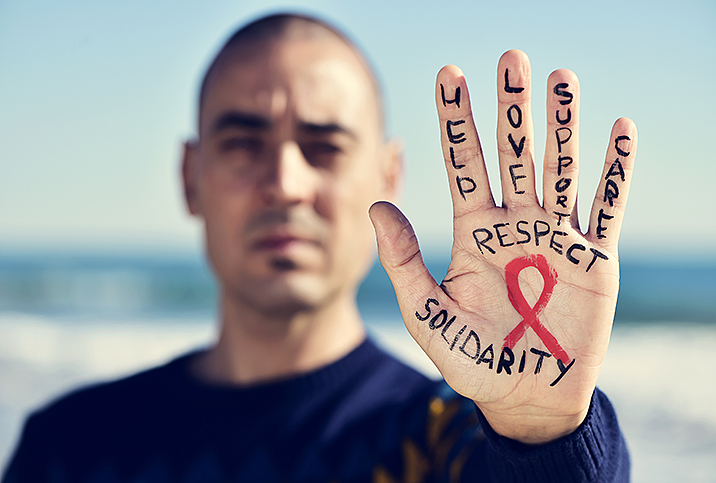A Dating Guide for HIV

Dabbling in the dating world should be a wild ride for everyone, but when you have a condition the world stigmatizes, it turns a fun fair ride into a haunted house of jump scares. Despite global campaigns to challenge public perceptions, the stigma around human immunodeficiency virus (HIV) endures, sometimes making dating with the condition an exhausting process.
In the U.S., approximately 1.2 million people have HIV, and in 2019, an estimated 34,800 new HIV infections were reported, so the need to manage the condition across all lifestyles remains pressing.
Living with HIV does not mean saying goodbye to carefree dating, but it does require a little more attention to detail. Dating is supposed to be a time for people to get to know each other without judgment getting in the way, but living with HIV can certainly complicate that process.
The symptoms of HIV
HIV damages cells in the immune system, weakening a person's ability to fight everyday infections and diseases. Although there is currently no cure for the virus, it can be effectively managed with medication. Nowadays, most people who get an early diagnosis and effective treatments will live long and healthy lives.
"Initial infection is often asymptomatic or may just be flu-like symptoms, [and] then nothing seems to happen for months or years," explained Jeff Foster, a general practitioner in the U.K. with a special interest in men's health. "Over time, the immune system is progressively destroyed [without treatment] until an acquired immunodeficiency syndrome occurs—better known as AIDS—then you have [a diminished] immune system, and any bacteria, virus or fungus could, in theory, kill."
Later, symptoms—which may not appear for up to 10 years post-infection—include weight loss, damage to the skin, infections that will not go away, night sweats and chronic diarrhea.
HIV is spread via bodily fluids: blood, semen, vaginal secretions and anal mucus.
Effective treatment can make an HIV viral load undetectable, meaning that it cannot be passed on to a partner during sex.
"The virus is most commonly passed from one person to another during unprotected anal or vaginal sex," said Sameer Sanghvi, clinical technology lead for LloydsPharmacy Online Doctors based in the U.K. "Unprotected sex means sex without a condom. It can also be passed on by sharing sex toys or during oral sex."
HIV is treated using a medicine called antiretroviral therapy (ART). Most patients will take a combination of various drugs and doctors may try varying those combinations to better manage the outcome for each patient. Effective treatment can make an HIV viral load undetectable, meaning that it cannot be passed on to a partner during sex.
"It's still good for [your partners] to be aware of your history with the virus," said Sanghvi. "It might take them a bit of time to trust that undetectable equals untransmittable, but being honest and open is one of the best ways to have a safe and healthy sexual relationship."
Impact on confidence
In countries with accessible and available treatment, HIV is a manageable condition but the stigma endures and it can affect dating confidence.
"At first I felt extremely dirty or nasty, and I didn't want to put anyone's health at risk," said Deondre B. Moore, U.S. partnerships and community engagement manager for Prevention Access Campaign.
Facing the dating world with a new diagnosis is scary because far too many people hold outdated beliefs about the virus, its effects and how it is transmitted. But a little education and self-love are transformative for dating confidently with HIV.
"Once I became more educated about sexual health—specifically around HIV—I began to realize that, as long as I am taking my medications as prescribed by my doctor and maintaining an undetectable viral load, I am putting no one at risk and becoming the best version of myself that's possible [as I'm] taking control of my health," Moore explained.
Accepting a diagnosis plays a key role in regaining self-confidence and reevaluating how to approach the world at large, including dating.
"I have learned to dismantle any stigma associated with HIV by providing the correct education and information needed to debunk myths and misconceptions," Moore added. "I have also learned that not everyone wants to actually receive that education or wants to believe it, which has moved me to not continue forcing anything and leave some folks where they are in their ignorance."
Opening up is crucial, but so is protecting yourself
When dating someone new, needing to share personal information upfront is scary, but being open about an HIV diagnosis is a necessity when sex is involved. Although no one owes anyone a full medical history, if you're engaging sexually with a partner, it is important that you inform them of your diagnosis.
"It can be hard opening up about your HIV diagnosis to a partner," Sanghvi explained, "but it's important they know about it, so that they can assess the risks they're taking and take any necessary precautions."
Divulging intensely personal information is never easy, but practice makes perfect.
"Dating has been fairly easy for the most part, and disclosure has also been very easy for me as time has progressed and the more that I have done it," Moore said. "It's been very simple to explain. I give the basics about what HIV is and note how far we have come since the '80s and '90s. With much emphasis on explaining what it means to be undetectable."
Barriers crop up though, so Moore's advice is to remember to prioritize your well-being. Do not feel obliged to tell someone your status if your date is not going to get physical and you do not feel safe disclosing to them. Plus, if someone is unsure about you because of an HIV status, do not waste your energy trying to convince them of your worth.
"The biggest issue that I have faced as it relates to dating is dating other HIV-positive (HIV+) people who are not as out about their status," Moore added. "Because they aren't as out about their status, they assume that if we go 'public' as partners or dating, that others will automatically assume that they are also positive, ultimately unintentionally outing themselves by being attached to me."
Thanks to years of misinformation, shame remains a problem amongst HIV+ folks. It cannot be fixed overnight, but educating yourself on the virus and practicing explaining its effects to others will make it easier to disclose over time.
"Your partner may not know much about the condition, and in that case, you can expect a lot of questions from their side—which is understandable," advised Liam Barnett, a dating expert based in the U.K. "You don't want to make a long description of it unless they ask questions. Keep it short while you confidently describe your condition to them."
Shattering the societal stigma
As we all know, reconfiguring public perception is an excruciatingly slow process, but it is possible. Attitudes have shifted significantly since HIV was first identified. A dynamic dating life is accessible.
Progress still needs to be made though—and that begins with robust education. When you have a medical condition of any kind, informing others is part of the package. And that teaching process is vital: If more people know about the advances in HIV treatment, fewer people with HIV would face judgment in dating, and in life in general.
"Know your worth and know that an HIV or an AIDS diagnosis does not diminish who you are as a human," said Moore. "Lead with love and ensure that when/if you disclose your status to potential partners or those around you, that you also provide the facts that debunk any myths or misconceptions that others may have about HIV or AIDS."







